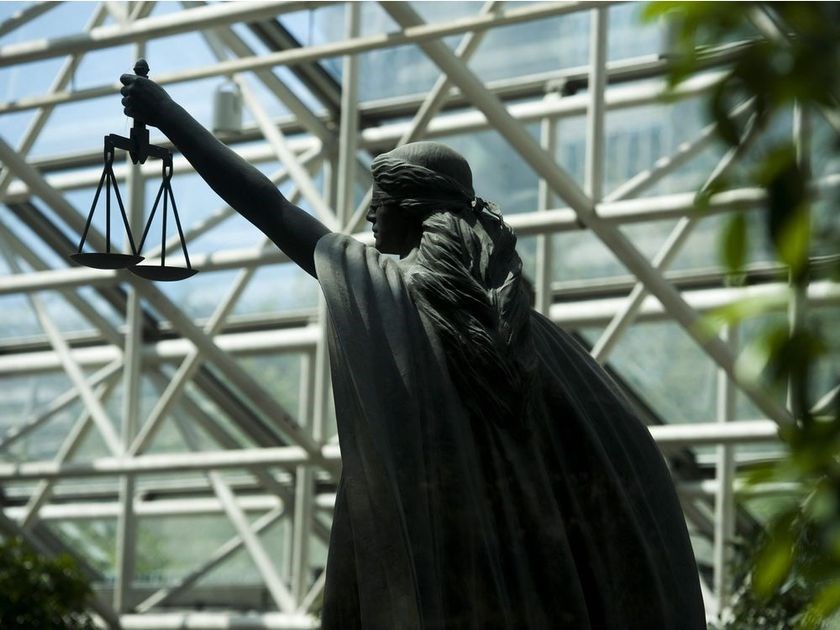In recent years, media reports about trials in sexual-assault cases across the country exposed judges’ ignorance about sexual-assault laws, about Parliament’s intentions behind the laws and the Supreme Court of Canada’s applications of the laws.
Former judge Robin Camp of Alberta, who asked a rape victim: “Why couldn’t you just keep your knees together?” Judge Gregory Lenehan of Nova Scotia, who stated that: “A drunk person can give consent.” Justice Robert Smith of Ontario, who acquitted a man who raped his wife. Judge Jean-Paul Braun of Quebec, who commented on the appearance of a 17-year-old rape victim while suggesting that she enjoyed the attention of the man who raped her.
These are just a few examples of judges contaminating sexual-assault trials with sexist stereotypes and victim-blaming myths about girls and women who experience sexual assault.
The pivotal judgment that came from the Alberta Court of Appeal ordering a new trial for Bradley Barton, the man who admitted causing the terrible death of Cindy Gladue, offers a sharp observation: “Despite efforts to thwart them, myths and stereotypes continue to stalk the halls of justice in cases involving sexual offences. … these persistent presumptions … reduce the entitlement of individuals to the equal recognition and protection of the law. This inequality falls most heavily on women, since sexual assault has been, and continues to be, largely a gender-based crime. The vast majority of victims are female, and the vast majority of perpetrators male.”
In an attempt to remedy the situation, the Canadian Parliament brought forward Bill 337, the Judicial Accountability Through Sexual Assault Law Training Act. The bill aims to restrict eligibility for federal judicial appointments to those who have completed education on the social context and law of sexual assault. It also amends the Criminal Code to require that reasons given by judges for finding the accused guilty or not guilty in sexual-assault cases will be entered in the record of the proceedings or be in writing.
However, if the bill becomes law, not only will it not apply to provincially appointed judges (who conduct most sexual-assault trials), but forced training is not a viable method to achieve transformative change.
What we need is a genuine application of the “open court” principle, a fundamental concept in a democratic society that allows the public to hold judges accountable.
In British Columbia, both in provincial court and the supreme courts, only written judgments are available to the public. Provincial court written judgments are posted on the Canadian Legal Information Institute website, and the B.C. Supreme Court written judgments are posted on the Superior Courts of British Columbia website.
Alas, in many sexual-assault trials in British Columbia, the judges give their judgments, and the reasons for the judgments, orally. All oral judgments are recorded, but not automatically transcribed. One can order the transcription of a particular judgment, but that usually costs hundreds or thousands of dollars (depending on the length of the transcription).
This means that, in reality, the public doesn’t have access to oral judgments and reasons for convictions and acquittals in sexual-assault trials in British Columbia.
In 2002, the Supreme Court of Canada reinforced the importance of judges providing reasons for their decisions by asserting that it is “fulfilling the judge’s duty to the public to be accountable for his or her decisions.”
Two years later, in 2004, the Supreme Court of Canada ruled (in an appeal launched by the Vancouver Sun) that: “Public access to the courts guarantees the integrity of judicial processes. … It is integral to public confidence in the justice system and the public understanding of the administration of justice.”
It is 2018 and we are calling on the attorney general of British Columbia to uphold his promise “to create a transparent justice system.” All oral judgments in sexual-assault trials must be transcribed and posted online. There is no accountability without transparency. Let all judgments be transparent and let the people hold judges accountable.
Hilla Kerner is spokeswoman for Vancouver Rape Relief and Women’s Shelter.



